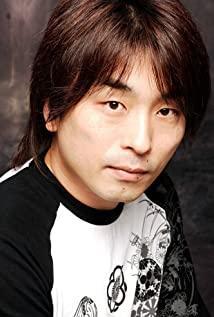-------------------------
"Things like magicians are precisely because they are ordinary in the world. It is against the laws of his own world, so he must strictly abide by the laws of his own world." "But Emiya is a man who is completely unscrupulous. He has no pride in being a magician. There is absolutely no forgiveness for such a thing.
" The sentence can be said to be the beginning of my interest in Tosaka Tokiomi when I watched the anime. It really shows the difference between Tokiomi and all the other masters - there is no innocent compassion for magicians and ordinary people like Kiritsugu, and there is no such thing as Kariya, who was born out of his father's perverted magic. The fear and hatred of the entire group of magicians does not have the innocence of Webber as a trainee magician, nor the conceit that is mainly based on his own genius like Kenneth, nor the emptiness and confusion of Kirei (not to mention Ryunosuke). ——Some are the sense of honor and responsibility as a member of the entire group of magicians under the premise of knowing the dark side of magicians. "The loyalty of a member of a special organization to the unique values of the organization" has always been a subject of my fascination. "Faithful defender of the creed of the organization, staunch defender of the order of the organization" - perhaps most viewers will take this as a sign of rigidity, dullness, and lack of humanity, which in turn is more likely to be perceived by those who have more personal emotions, often for this Impressed by deviant characters; and in the works, the former type of characters often get the ending that they are considered self-inflicted because their ideas die without a place to be buried. But to explain to me that I know that the environment I live in is far harsher than the "outside world", but still can accept its laws safely, "Because it is harsher than the outside world, its order should be more guarded", "In such an environment As long as you have self-discipline, you can be respected by others and live with a clear conscience." ... and the attitude of having no regrets even if there is no burial place is the most attractive. Tosaka Tokiomi first won my favor with this image.
"Tokiomi spent half of his life in hardship. He licked away the bitterness along the way, and turned it into self-esteem." "These men, they define the meaning of their birth, the meaning of their lives, and use it as a A lifetime of belief, firm belief. They are never confused or hesitant. No matter what situation they face in life, they will go all out to achieve their set goals in life, with a clear policy, with a hard-working steely Will." - The novel's description of Tokiomi in Kirei's eyes just confirms my above impression. And from the novel, it can also be known that Tokiomi indeed bears the responsibility of "maintaining order" in the Magic Association, such as "hiding the existence of the magic world from the outside world". It's an indescribable joy to see my brain supplements affirmed in a better way in the original.
It is not surprising that such a person still clings to the pure and cold desire of "getting to the root" in the face of the all-powerful desire machine, which is similar to "knowing the truth". But the subtle thing is that Tokiomi, who has a relatively honest and harmless goal, is also the first and biggest cheater in the Fourth Holy Grail War, and he doesn't even feel any guilt or guilt about his cheating behavior. Self-esteem is generally planned and executed as a task—an even more paradoxical cuteness to me. Since the death game is played between seven groups of masters and servants with the goal of pursuing the Holy Grail, in order to achieve an ending that conforms to the values of the most orthodox magician, and at the same time minimize the unnecessary impact on the outside world, the game is limited. Exploitation of loopholes in the rules is also a matter of course and without doubt. It is precisely because of this aspect that Tokiomi's "orthodoxy" is different from the boring pedantic in my mind.
What made my affection for Tokiomi upgraded to cute is the psychological description of him in the novel when he bids farewell to Rin: the stable owner Tokiomi Tosaka was originally a person with mediocre qualifications, and his future achievements were achieved by hard work. ; He is the faithful son of the Tohsaka family, who affirmed the cause of the ancestors of all generations with his own will, and is eager to use his own hands to realize this unfinished cause. "Tokiomi Tokiomi decided to step into the devil's way through his own consciousness, and was determined not to be at the mercy of fate. It was this realization that gave Tokiomi a steely will. Since then, it has supported him through the days of harsh training. It is this arrogant conceit of "this is the way of life I chose." "For the adoption incident that caused countless controversy, this can provide the most reasonable explanation: both daughters have rare talents, but the Tohsaka family can only be one of them's shelter, and the other will face the inevitable consequences of extraordinary talents. Tokiomi, who has always been proud of "choosing his own way of life", must be very sad. The road ahead is difficult and dangerous, but at least we must control our destiny as much as possible. In my own hands - this is what Tokiomi expects from his two daughters, not the so-called unwillingness to let his daughters become mediocre, or even sacrificing their happiness. I have no intention of whitewashing Tokiomi, just ignoring that he is mediocre. With the important background of being grateful to his father for giving him the right to choose independently, all the psychological speculations about Tokiomi in the adoption incident can only be groundless speculations, and the black is also in the wrong direction. What worries Tokiomi is precisely the "almost cursed" genius. If Sakura was as mediocre as himself, Tokiomi would be relieved. As for what happened to Sakura in Matou's house, it is true that sometimes the minister was responsible for oversight, but in all fairness, compared to The cold blood of my father, this is more of a cruel joke from fate.
---------------------------------- ---
About Tokiomi's boredom:
"Boring man" - Gilgamesh's evaluation of Tokiomi can be said to be extremely influential and widely circulated. How do others understand the meaning of "boring"? "Hypocrite", "pedantic fool", "incompetent incompetent"... I think this category will be overwhelming. As for myself, I care more about Gilgamesh's other words: "There must be one or two interesting guys? At least they should be more interesting than Tokiomi." In this way, Tokiomi is in his eyes It's not just boring, it's just the pinnacle of boredom. Why is this so? I couldn't help but be very curious.
Gilgamesh himself said that he likes "human karma". His "entertainment" started by investigating the masters' motives for pursuing the Holy Grail, and the one that really became his (and Kirei's) entertainment material, and was most in line with the theme of "karma", was Matou Kariya. What's so special about Kariya among the 7 masters, is it an incredible feat of self-sacrifice? Not really. "At the end of the face of that blood-stained victory, Matou Kariya will definitely fall into the predicament of having to face the ugliness in his heart"—this is Kirei's suggestion from Gilgamesh, from The greatest value found in Kariya. Later, the "Church Soap Opera" jointly directed by the two of them further confirmed that, unlike "artists of human flesh" like the Caster group, Gilgamesh and Kirei should be classified as "artists of human souls"—their joy comes from The dark fissures of the soul, no matter how small, how hidden, or how noble the surface is, they are happy to dig into it until it becomes a black hole that devours everything.
In this way, it is understandable that Tokiomi is regarded as the culmination of boredom-in the desire of the six known masters (Kiritsugu's motives have not been discovered) to entrust the Holy Grail, Tokiomi's "reaching the root" "It can be said that it lacks the color of selfish desire, and even has nothing to do with the entire "inner" world, neither "good" nor "evil", it is almost equivalent to a zero-like existence; the owner of this desire must also be like Too square, hard and smooth, there are no cracks to dig. This is already reflected in Kirei's initial impression of Tokiomi ("Those who only see their ideals cannot understand those who are confused and troubled because they do not have ideals"). Years later he was even more sure of it ("There is an unbreakable line between myself and my father and Tokiomi"). Interestingly, Tokiomi was the first victim of Kirei's awakening, but in his objective and calm, even respectful understanding of Tokiomi from beginning to end, he could not see anything such as hatred and contempt that could be called. Malicious emotions—it seems that his most important understanding of Tokiomi lies in the insurmountable and essential gap between them, and from the standpoint of the awakened Kirei, it is probably a kind of "no way" Get started" feeling. A firm and clear self-will, no wavering, no confusion, and always walking on the path of gaining his own affirmation... All of this determines that Tokiomi has no value in extracting pleasure for Kirei and Gilgamesh, who are keen on soul fissures. For me, it is the most precious quality. That's why I have no sympathy for the ending of Tohsaka Tokiomi - after all, sympathy for such a thing is completely unnecessary for a life that unfolds and ends in a way that I agree with from beginning to end.
"This girl is going step by step towards the path of foreign law called the Demon Dao. Perhaps she will eventually, like her father, abandon all the distortions and evils of magicians and form the most upright and balanced personality. Of course, this pair of Kirei came It's the most boring development. He was so looking forward to what kind of twisted flowers that Tokiomi's daughter would bloom." In the end, let's end with Kirei's opinion of Rin at Tokiomi's funeral. Although Tokiomi was a person who was so invulnerable that Kirei felt helpless and uninterested, fate had arranged for him to be the guardian of Tokiomi's daughter; and for the rift that his father did not have, he originally longed for a personality that had yet to be finalized. It was found on the girl of —— it seems to be a mischievous fate that offers an opportunity to make up for some regret. It just annoyed him that even though he was just a girl, Rin seemed to have inherited those qualities in Tokiomi that he couldn't get started with, and maybe one day he would become indestructible; Shin Tokiomi's heart, in turn, gave Rin's sword of Azoth, which would end his own life at some point in the future.
This ending couldn't be more complete.
View more about Fate/Zero reviews











